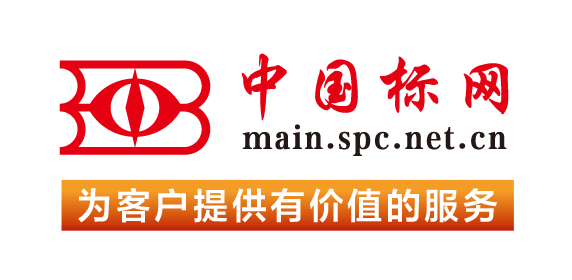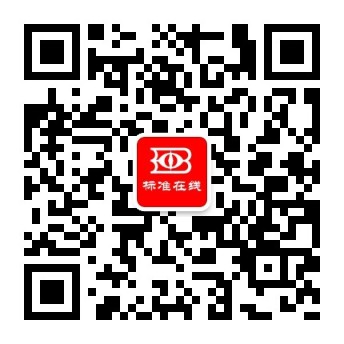【国外标准】 Standard Specification for Evaluation and Selection of Onsite Offices for Environmentally Sustainable Meetings, Events, Trade Shows, and Conferences (Withdrawn 2020)
本网站 发布时间:
2024-02-28
- ASTM E2747-11
- Withdrawn, No replacement
- 定价: 0元
- 在线阅读
开通会员免费在线看70000余条国内标准,赠送文本下载次数,单本最低仅合13.3元!还可享标准出版进度查询、定制跟踪推送、标准查新等超多特权!
查看详情>>
适用范围:
1.1 This specification delineates procedural requirements for establishing onsite offices in conjunction with meetings, events, trade shows, or conferences (hereafter, referred to as events) by planners and suppliers.1.2 Establishing an onsite office is the practice of procuring and equipping planner event or working spaces used for operational purposes, within or nearby the venues.1.3 This specification pertains to onsite offices established by the event organizers for use by the event’s planner, staff, volunteers, sponsors, or vendors requiring temporary offices.1.4 An environmentally sustainable office includes aspects of accommodations, communication and marketing materials, exhibits, food and beverage, venues, and transportation specifications. The specifications of these standards shall be visited and understood by planners and suppliers in order to effectively carry out the specifications of the onsite office standard.1.5 There are nine specifications covering the following areas of meeting planning: destination selection, accommodations, food and beverage, audio visual, onsite offices, communication and marketing materials, transportation, exhibits, and venues. Within each specification are eight categories of criteria: staff management policy, communications, waste management, energy, air quality, water, procurement, and community partners. Each category is further split into four progressive levels of achievement. Information within each specification is divided as follows: Main Body, Referenced Documents, Terminology, Planner Requirements for Level 1. Supplier Requirements for Level 1, and Keywords; AnnexesPlanner Requirements for Levels 2 – 4 and Supplier Requirements for Levels 2 – 4.1.6 All areas of performance under this specification may not be relevant for each event or for each facility or provider of event services. In some cases, an event planner would use this specification in conjunction with other specifications (for example, Specifications , ) or this specification may be used individually. In other words, elements of an event may be separated and considered solely or added together and considered as a unit (for example, venues used individually versus transportation, accommodations, and destination selection used in conjunction). Furthermore, this specification applies separately to each supplier for an event. This means if multiple suppliers are used within the context of a single specification, each supplier shall individually meet the supplier requirements. To be considered an environmentally sustainable event at Level 1, all areas applicable to that event shall be achieved.1.7 If higher levels are achieved in some sections, the event can only be considered environmentally sustainable at the lowest level achieved.1.8 The use of levels within this specification recognizes the path to environmentally sustainable meetings is a multi-stage effort. The idea behind the levels is to provide a coherent baseline for measuring environmental performance, to be flexible enough to adapt to the needs of more advanced planners, and to establish a performance path that encourages further environmental performance improvement. In addition, evolution of products and services to support events is expected, allowing additional advancements and underscoring the dynamic nature of environmental sustainability. This specification primarily focuses on environmental sustainability, while some aspects of economic and social sustainability are included recognizing the complete path toward overall sustainability.1.9 This standard does not purport to address all of the safety concerns, if any, associated with its use. It is the responsibility of the user of this standard to establish appropriate safety and health practices and determine the applicability of regulatory limitations prior to use.
标准号:
ASTM E2747-11
标准名称:
Standard Specification for Evaluation and Selection of Onsite Offices for Environmentally Sustainable Meetings, Events, Trade Shows, and Conferences (Withdrawn 2020)
英文名称:
Standard Specification for Evaluation and Selection of Onsite Offices for Environmentally Sustainable Meetings, Events, Trade Shows, and Conferences (Withdrawn 2020)标准状态:
Withdrawn, No replacement-
发布日期:
-
实施日期:
出版语种:
- 推荐标准
- ASTM D7379/D7379M-08(2021) Standard Test Methods for Strength of Modified Bitumen Sheet Material Laps Using Cold Process Adhesive
- ASTM D7381-07(2021)e1 Standard Practice for Establishing Allowable Stresses for Round Timbers for Piles from Tests of Full-Size Material
- ASTM D7382-20 Standard Test Methods for Determination of Maximum Dry Unit Weight of Granular Soils Using a Vibrating Hammer
- ASTM D7385-21 Standard Guide for Estimating Carbon Saturation by Temperature Rise Upon Immersion
- ASTM D7387-20 Standard Test Method for Vibration Testing of Intermediate Bulk Containers (IBCs) Used for Shipping Liquid Hazardous Materials (Dangerous Goods)
- ASTM D7390-18e1 Standard Guide for Evaluating Asbestos in Dust on Surfaces by Comparison Between Two Environments
- ASTM D7391-20 Standard Test Method for Categorization and Quantification of Airborne Fungal Structures in an Inertial Impaction Sample by Optical Microscopy
- ASTM D7392-20 Standard Practice for PM Detector and Bag Leak Detector Manufacturers to Certify Conformance with Design and Performance Specifications for Cement Plants
- ASTM D7395-18(2023) Standard Test Method for Cone/Plate Viscosity at a 500 s-1 Shear Rate
- ASTM D7396-14(2020) Standard Guide for Preparation of New, Continuous Zinc-Coated (Galvanized) Steel Surfaces for Painting
- ASTM D7398-23 Standard Test Method for Boiling Range Distribution of Fatty Acid Methyl Esters (FAME) in the Boiling Range from 100 °C to 615 °C by Gas Chromatography
- ASTM D7399-18 Standard Test Method for Determination of the Amount of Polypropylene in Polypropylene/Low Density Polyethylene Mixtures Using Infrared Spectrophotometry
- ASTM D7400/D7400M-19 Standard Test Methods for Downhole Seismic Testing
- ASTM D7402-09(2017) Standard Practice for Identifying Cationic Emulsified Asphalts
- ASTM D7403-19 Standard Test Method for Determination of Residue of Emulsified Asphalt by Low Temperature Vacuum Distillation
 购物车
购物车 400-168-0010
400-168-0010













